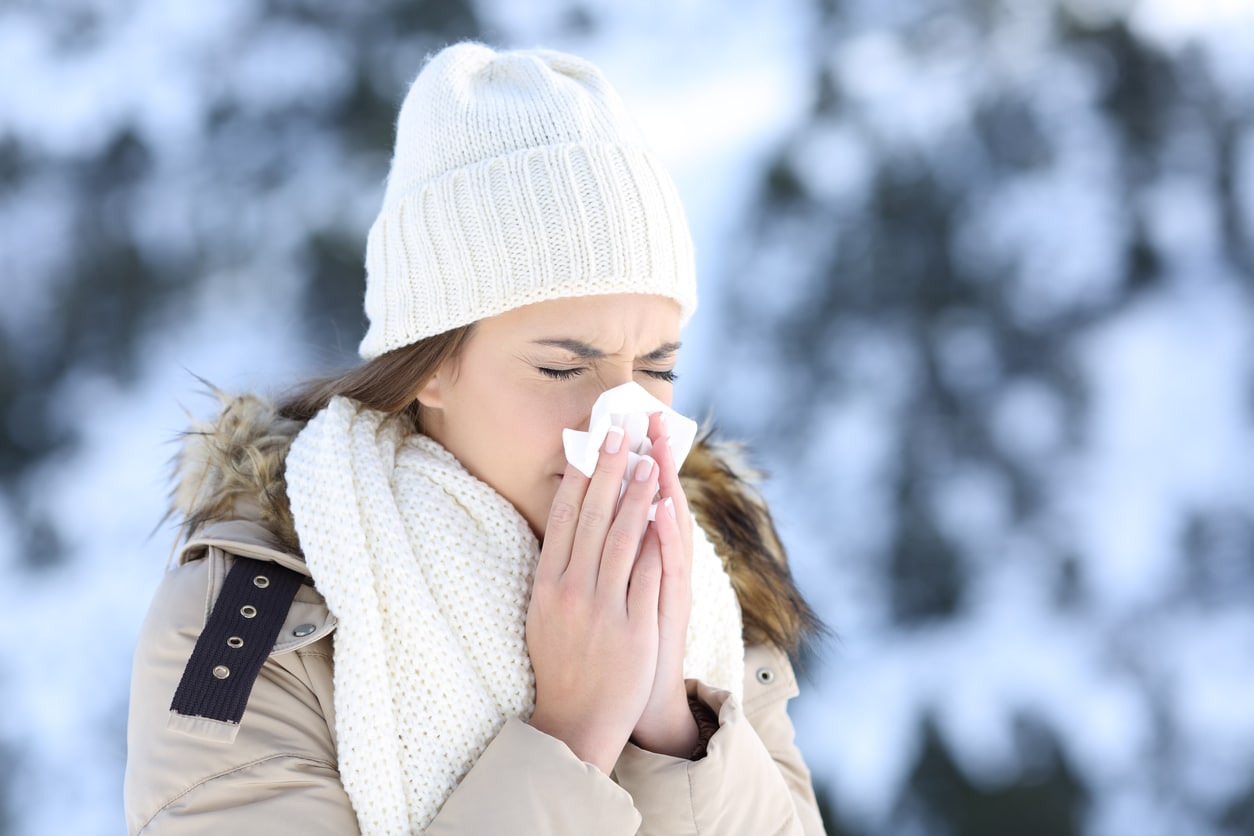As temperatures drop, you may have noticed feeling congested or having a runny nose, even if you’re not sick. Cold weather can significantly impact sinus health, as cold air is drier than warm air and can dehydrate the nasal passageways. This leads to irritation and inflammation, causing all kinds of sinus symptoms.

Common Winter Sinus Symptoms
When the tissues lining your nasal passages are dehydrated and inflamed, the swelling can obstruct the nasal passageways, which leads to that stuffy, plugged-up feeling. Severe swelling can also cause facial pressure and sinus headaches.
Additionally, when nasal passages are swollen shut, mucus cannot drain properly, leading to buildup in the sinus cavities behind the nose and face. This can cause the mucus to thicken and turn a cloudy, yellowish color, and the mucus buildup creates the ideal conditions for bacteria to grow, which can cause a sinus infection.
At-Home Remedies
There are many practical steps you can take to treat congestion and other sinus issues.
- Stay hydrated. Combat the effect of dry winter air by keeping your body well-hydrated. Drink plenty of water and other fluids.
- Use a humidifier. Another way to stop the effects of dry air is to add moisture back into the air. A humidifier is an effective way to do this. Additionally, breathing in the water vapor from the humidifier will rehydrate your nasal passages more directly, providing some instant relief.
- Take a hot shower. Steam from the shower helps break up congestion in the nasal passages. The warmth of the water can also reduce nasal swelling.
- Use a warm compress. Soak a towel or washcloth in hot (but not scalding) water and press it against your nose and temples. The warmth will reduce inflammation, and the moisture will open up your stuffy nose.
Medications
If your congestion persists or you feel you’ve begun to develop a sinus infection, over-the-counter medications may bring the relief you need.
- Decongestants. Decongestants (Sudafed, Claritin-D) decrease mucus production and reduce inflammation in the nasal passages. This will unblock the nasal passages and help with clearing out mucus buildups.
- Pain relievers. Mild pain relievers, such as acetaminophen (Tylenol) or ibuprofen (Advil), can help reduce inflammation and alleviate some discomfort.
- Nasal sprays. Nasal sprays flush out irritants and reduce inflammation. They will also moisturize the skin inside the nose.
When to See a Doctor
If congestion issues aren’t going away with at-home treatment, or if you’ve come down with a sinus infection and it hasn’t gone away after two weeks, it’s time to see an ENT professional. They can determine the root cause of your sinus issues and develop a personalized treatment plan to alleviate those unpleasant symptoms. Winter weather doesn’t have to mean suffering from sinus issues. Call Palmetto ENT & Allergy to make an appointment and find relief today.
